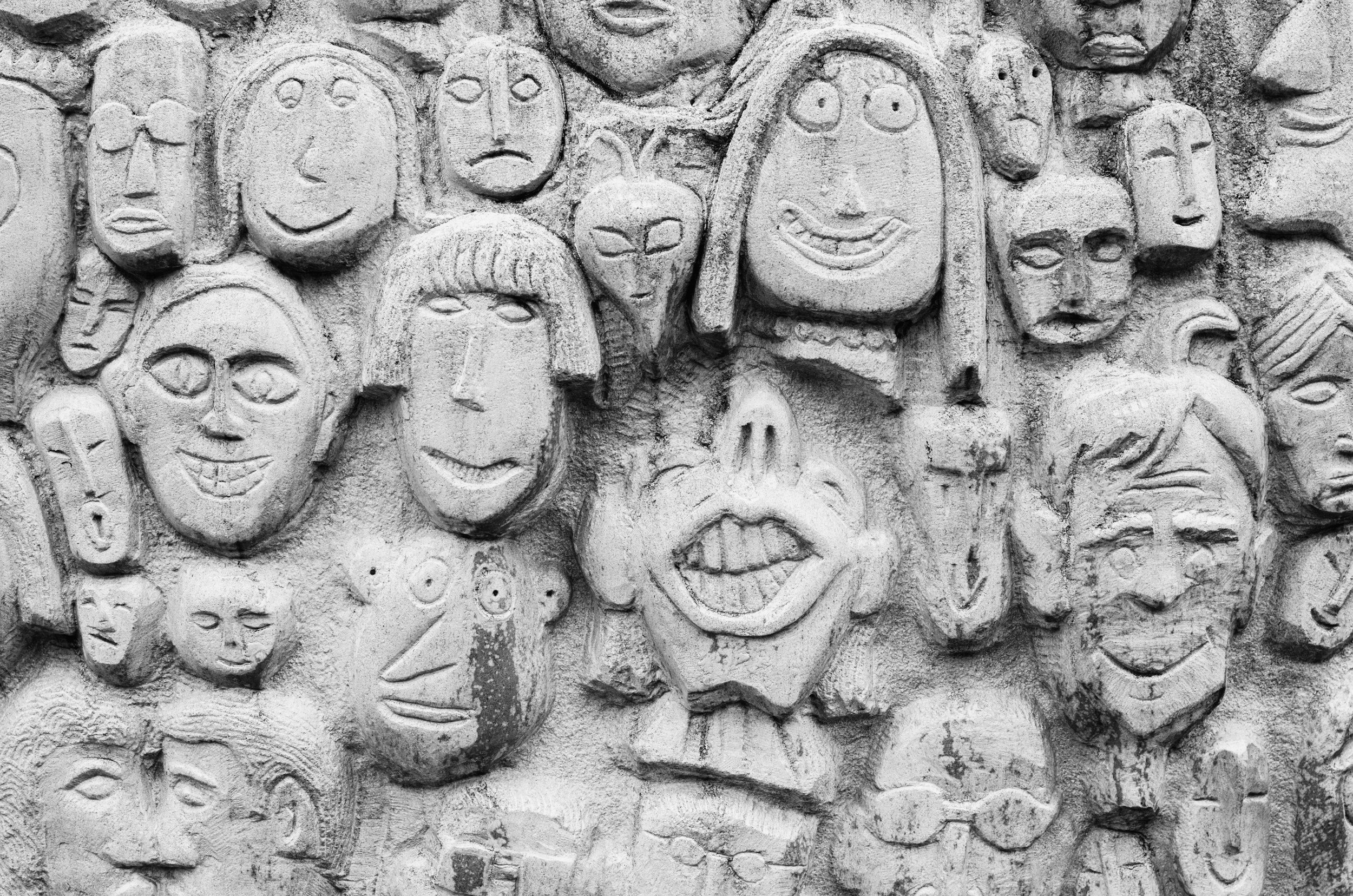There must be something about transmuting shame rising in the collective right now. When I took part in a constellation for healing at the Integral Europe conference in 2015, guilt and shame came up as the central energetic blocks for humanity’s evolution. Now I’m writing up the results from my current research into the transformative meaning in ‘madness’, and shame has come up as a central catalyst for extreme states due to the ‘internal split’ it creates. So why is shame so common, and does it have a purpose to support our evolutionary shift?
When my dear friend Martha asked if I’d share her latest blog with the Emerging Proud community, it didn’t surprise me that shame was the central theme – we often find ourselves tapping into the same stream of consciousness. Here she discusses, as eloquently as always, the links between shame, Self-trust, belonging and spiritual crisis. Enjoy.
How do I move through this shame? This is a question that comes up repeatedly in my peer support work with people who have experienced spiritual crisis or psychosis. But shame is a universal human experience, not limited to integrating unusual or extreme states of consciousness. This piece explores the evolutionary purpose of shame and how to activate self-trust as an antidote.
Shame has evolved alongside humanity; cooperation and working together in groups set us apart from other primate species, granting us evolutionary longevity and dominance. Working cooperatively and being part of a group was so key to survival that breaking too many social rules would likely mean exile and early death.
Therefore, when we feel shame, we experience an emotion that is deeply rooted in the human need for belonging, one which has evolved to deter (or protect us) from acting in ways that would socially devalue us and compromise our access to mutual aid through familial and tribal belonging.

Yet perhaps surprisingly, it is not the act of ‘doing wrong’ that is needed, or indeed enough to trigger shame. Research shows that being devalued, disliked, or oppressed by others can trigger shame even when individuals know they have done nothing wrong.
The elicitor of shame therefore is not objective wrongdoing, but rather the threat or actuality of social devaluation.
In fact, shame-based living can involve doing all the right things- as mentioned above, we don’t need to have done anything inappropriate or wrong to experience shame. But if we ask ourselves, ‘what is this do-good behaviour in service to?’ and the answer is- a fear of being bad (and the social consequences of that)- then we are still living through the binary lens of shame. A lens relies on external validation of our worth or lack thereof. Like many forms of binary thinking, shame-based thinking tends to see in black and white, good and bad, right and wrong. It lacks a tolerance for complexity, within oneself, and amongst others.
This is not to say that having a moral compass isn’t required. But the compass we need is within us, not in fear-based assumptions of what others will make of our decisions and choices. This is where I believe self trust comes in, as well as inner safety. When shame arises, there is a process of discernment needed, a sifting through of our own behaviour and that of others, to see with honest eyes and relative clarity, where action and change is required, and where that responsibility may lie with someone else.

Identifying where changes in behaviour need to be made is such circumstances is an example of adaptive guilt. A key difference between shame and guilt is that shame is hooked onto our identity, and says ‘I am bad’, whereas guilt focuses on behaviour and says ‘ I did something bad’. It becomes adaptive guilt when the inner compass of self-trust supports us in bearing the discomfort of seeing our behaviour and taking appropriate action, without becoming paralysed by shame.
Self-trust is directly linked to our instincts and the pool of deep intuitive knowing within each of us. When we are connected to it, we are motivated to behave in ways that are nourishing, meaningful and in integrity. And yet to make contact with this inner security and knowing, we need to feel safe enough to get quiet and still, to cease for a moment the relentless rush and listen to the quiet murmur of Soul.
This stillness can be a barrier to self trust in itself, especially for those dealing with unprocessed trauma. When there is a lack of internal safety, it may feel impossible to sit quietly with an experience as challenging as shame, in order to hear its message. Grounding and stabilisation work with a practitioner trained in embodied mindfulness or somatic practices can help to regulate the nervous system and build body awareness and somatic safety. In my experience this creates a solid foundation for further exploration of the inner world.
Once a secure base within the self has been established, one way to gain a greater sense of self-trust is to become really familiar with one’s own psyche. That might be through a framework like Internal Family Systems (IFS), where conflicting inner ‘parts’ are given space to be listened to, understood and unburdened. Alternatively a Jungian approach of understanding the prominent archetypal complexes within the psyche, through dreamwork or visualisations might appeal.
Walking the landscape of our inner world, feeling the ground of one’s own Being and perceiving our innate multiplicity, can build trust in our capacity to face ourselves.

Both Jungian and IFS approaches recognise that the inner world is not made up simply of the Self, but a multitude of different parts, complexes, energies- often with conflicting viewpoints, needs or agendas. Getting to know the many facets of our inner world can be very useful in navigating shame, because it creates a compassionate container for and clearer understanding of the parts of our selves that may be acting in ways that our against our best interests, without denying aspects of the psyche that are healthy, positive and nurturing. This form of self inquiry facilitates a precise and nuanced understanding of where we are distorted, without needing to identify with that distortion as all that we are, piling yet more shame upon ourselves.
There will always be shadows in the land of the psyche, especially when we are shining a light, inquiring into dusty, unfamiliar corners of the inner world. But by listening to the parts, contemplating the dream images, and following the threads that are shown to us, a steady confidence and trust emerges in the self to be able to confront darkness, threat, fear or shame with curiosity, courage and compassion.
We might notice that synchronicities increase when we are deep in the depths of such investigations. As Jungian analyst James Hollis notes, the psyche will always support that which is meaningful. And when the outer and inner worlds begin to weave inexplicably together, we know we are being supported to continue.
When we become wanderers of the psyche, we increase our tolerance for staying with the unruly, disturbing or uncomfortable- including the experience of shame.
With this growing capacity, we can start to perceive the innocence and humanity at the heart of shame. Let’s remember that shame is essentially driven by a need to belong, and the real or perceived threat to that belonging. What human doesn’t want to belong? Just like the newborn baby, who will perish if rejected or exiled, we have evolved to need each other. This reframing of shame can transmute it from a paralysing experience to one that reminds us of our common humanity.

For those of us who have experienced a spiritual crisis, non-ordinary states or a psychosis of some kind, the idea of belonging can feel distant, unreachable or like something from the past, that no longer applies. When no one around you understands your experience, this alone could be enough to trigger the threat of social devaluation and shame. How do we fit, now that our whole worldview has changed? Who do we speak to, and about what, now that what’s important to us has shifted entirely? The dismantling of identity that often accompanies a spiritual crisis (or any crisis in fact) can bring forth shame with ease. What is our value, socially, if we don’t even know who we are anymore?
This is where community and high quality peer support can provide a container- for navigating shame and re-building self-trust after a period of crisis. Having key aspects of our experience and insights understood and mirrored in the experience and wisdom of others can alleviate the sense of exile that is so common after internal journeys of depth.
As a spiritual emergency/psychosis peer, embodied mindfulness coach and astrologer, I offer a tailored approach to holding space for people looking for crisis integration support. The core of my work is based around my own experience of non-ordinary states: the recognition of my own distortion during that time, as well as the insights, compassion and transformation that were catalysed; and finally, my commitment to opposing iatrogenic harm from the psychiatric system and alleviating hermeneutical oppression through soulful, creative, empowered meaning making.
Access Martha’s original post and website here , or get in touch for a free consultation here.






















